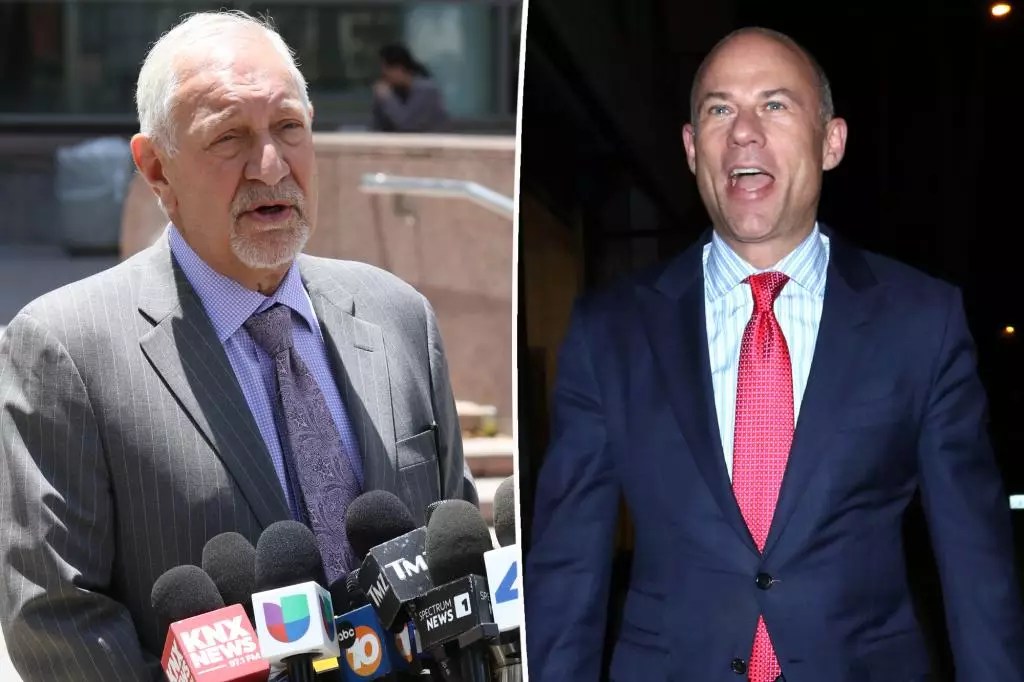Legal professionals often aspire to be celebrated figures, wielding influence and prestige that surpass their actual courtroom victories. Yet, beneath the veneer of high-profile cases and glamorous clientele lies a complex web of moral dilemmas and ethical pitfalls. The recent revelations involving Mark Geragos underscore the perilous distance between reputation and responsibility. Despite representing icons like Michael Jackson and Chris Brown, Geragos has found himself entangled in a web of misconduct, illustrating how even seasoned lawyers can fall prey to moral shortcomings when ambition blinds judgment.
This case challenges the public’s illusion that legal prowess inherently equates to integrity. Geragos’s involvement—with knowledge of wrongful actions and active encouragement—paints a stark picture of how powerful figures can enable or conceal misconduct. It emphasizes that legal success is not a shield against scrutiny, particularly when it intersects with morally questionable activities like aiding clients in schemes that harm others. This scenario reveals the necessity for the legal community and society at large to scrutinize not just outcomes but also the ethical foundations upon which legal careers are built.
The Fallacy of Impunity Among the Elite Legal Class
The civil verdict against Geragos, ordering him to pay $100,000, is a telling indicator of how favoritism and influence often obscure accountability. Clearly, the justice system has limits—what seems like a victory in high-profile cases can often conceal harsher realities. Geragos’s claim of near vindication and gratitude for the jury’s decision is a classic deflection—a way to downplay the substantive findings that he was complicit in wrongdoing.
This case dismantles the misconception that experience or reputation insulates attorneys from consequences. While criminal charges may have been avoided, the civil judgment solidifies a narrative that even the most formidable figures are not untouchable. Such outcomes should serve as a sobering reminder that legality is the minimum standard, not the mark of moral excellence. The legal fraternity must confront its own ethical boundaries; otherwise, it risks fostering a culture where influence and adulation eclipse fundamental principles of justice.
Accountability as a Catalyst for Genuine Reform
The story of Geragos and Avenatti exposes the peril of unchecked power within the legal profession. High-profile misconduct, once concealed by media savvy or reputation, is increasingly subject to judicial scrutiny, signaling a shifting paradigm. That a jury found Geragos liable despite his prominence underscores an encouraging trend: accountability can spring from unexpected quarters, compelling lawyers to reflect on their moral compass.
Furthermore, this case underscores that the pursuit of justice isn’t only about winning cases or amassing fame; it’s about upholding a moral standard that recognizes the human cost of legal actions. When attorneys knowingly support wrongful schemes, they compromise the very integrity of the profession. Recognizing these lapses can cultivate a culture of ethical vigilance, ensuring that future legal advocates prioritize justice over reputation. Ultimately, true reform hinges on transparently confronting and penalizing misconduct, regardless of social standing or influence. This episode serves as a potent lesson: integrity must be central to the practice of law, not an afterthought or collateral damage in the pursuit of notoriety.







Leave a Reply